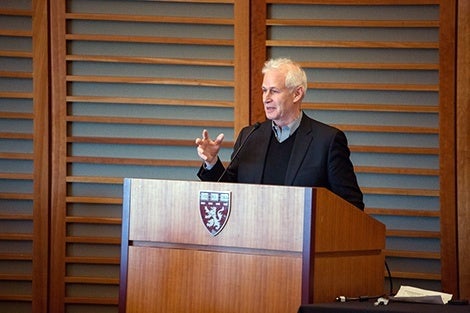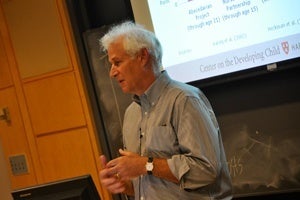Harnessing the science of child development in policymaking
A new paper from the Center on the Developing Child at Harvard University outlines ways that policymakers and others can use the science of child development to guide choices affecting children and families.
Protecting children from the trauma of gun violence, racism
The nation’s pediatricians are launching new efforts to help their young patients avoid being traumatized by gun violence and racism. In July 2016, the American Academy of Pediatrics (AAP) issued recommendations to shield children from media violence, and…
New report calls for science-based approach to early childhood development
Harvard University’s Center on the Developing Child on May 4, 2016 released a report, From Best Practices To Breakthrough Impacts, that calls for a new era of research & development (R&D) in early childhood policy and practice in order…
Striving and thriving: Reducing the effects of adversity on early childhood development
April 3, 2015—It’s estimated that half of the 500 million children in low- and middle-income countries will face physical or cognitive developmental challenges. That eye-opening number set the tone for the second annual State of Global Health Symposium…

Chronic stress takes a toll on the young
For very young children, growing up in a chronically stressful situation can lead to difficulties in school and poor health later in life, new research suggests. To offset these by-products of “toxic stress” in the most at-risk children,…
Investing in America’s youngest children key to lifelong health
A new report urges a stronger focus on improving socioeconomic conditions in the U.S. as a way to improve health—especially among low-income Americans. Issued by the Robert Wood Johnson Foundation’s Commission to Build a Healthier America, the report…
New strategies needed to help vulnerable children grow into healthy adults
Parents and adults working with vulnerable young children and babies must be better equipped to shield the youngsters from “toxic stress” and other adversities that can contribute to the development of heart disease, obesity, diabetes, and other diseases…
Prolonged childhood stress takes toll on developing brains that can last a lifetime
“Stress wears the body down,” HSPH Prof. Jack P. Shonkoff, director of the Center on the Developing Child at Harvard, told the Boston Globe. When the stress response system stays activated for long periods of time, the hormones…
Protecting children from adversity key to healthy development
August 16, 2011 -- For years, state and national policy regarding early childhood has focused primarily on educational enrichment. That’s all well and good, but it’s not enough, says Jack P. Shonkoff, Julius B. Richmond FAMRI Professor of Child…

Happiness & health
[ Winter 2011] The biology of emotion—and what it may teach us about helping people to live longer Could a sunny outlook mean fewer colds and less heart disease? Do hope and curiosity somehow protect against hypertension, diabetes, and…